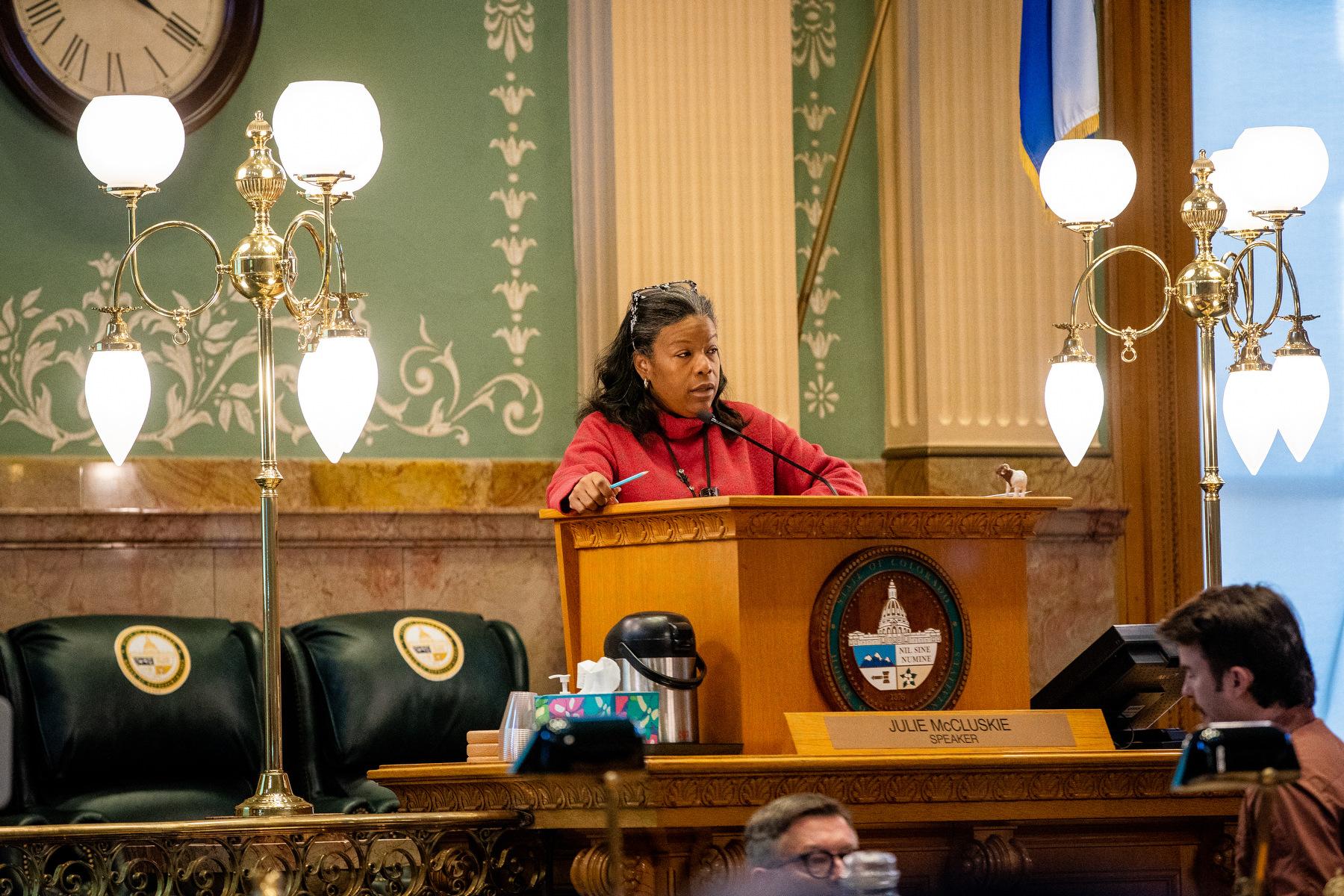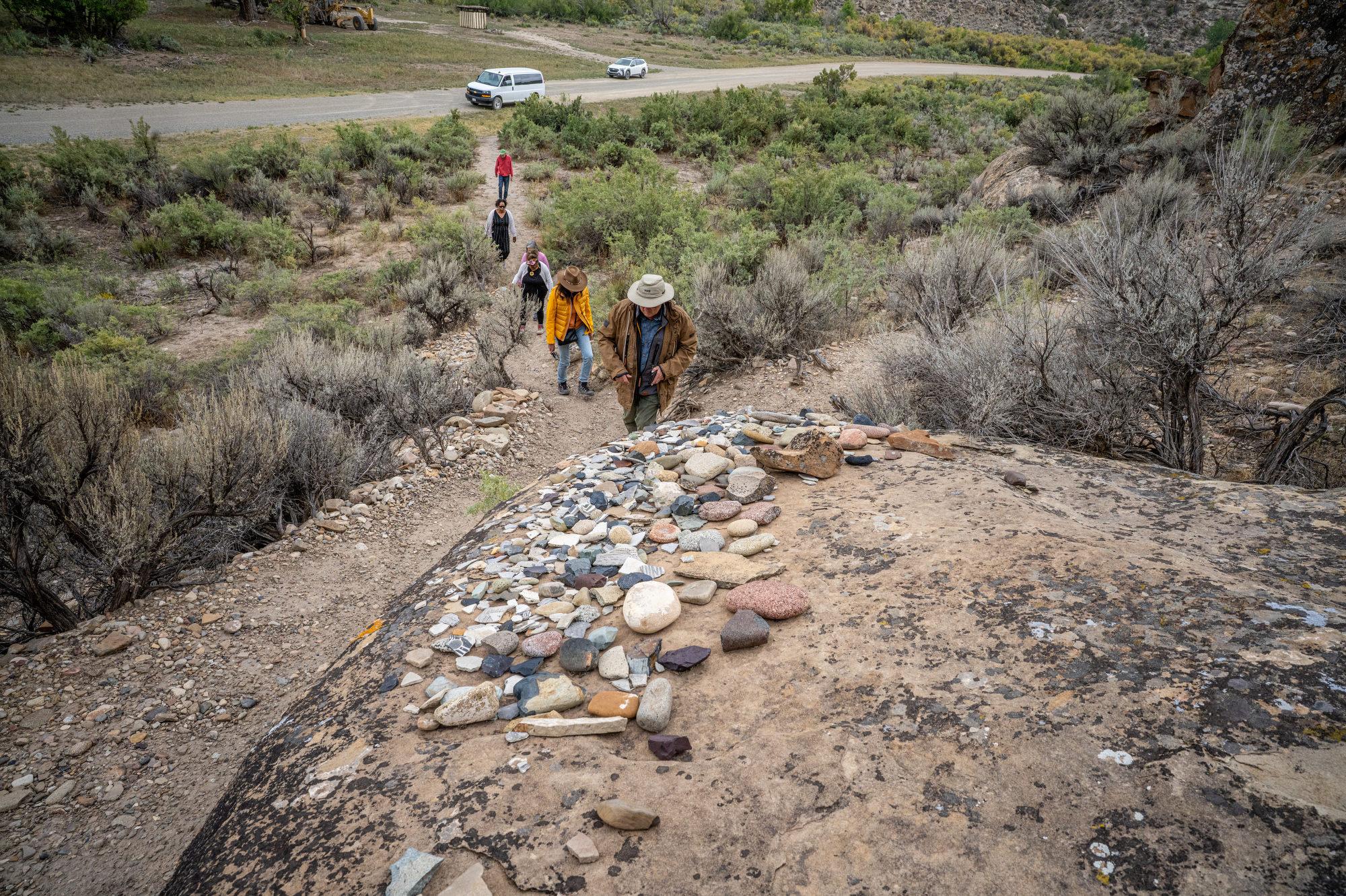
A conflict over a law enforcement misconduct bill and other issues delayed proceedings in the state House Wednesday morning, with nearly a dozen Colorado Democratic House members walking off the chamber floor as the House was taking final votes on bills.
Among other concerns, they were trying to pressure House leaders into ensuring the law enforcement misconduct bill gets consideration by the full chamber with enough time to move to the Senate before the legislature adjourns next week.
House Bill 1460 was introduced two weeks ago with the backing of two of the House’s most prominent Democrats, Assistant Majority Leader Jennifer Bacon, who also chairs the Black Democratic Legislative Caucus, and Rep. Leslie Herod, the former chair.
It had been slated for a preliminary House vote Wednesday but was pulled from the calendar for the day.
After a meeting in the House Speakers office, Herod said she was told the bill would only be held for one day, which means it could come up for a floor vote Thursday.
Bill scaled back, but still provoking strong opposition
As introduced, the bill originally required a law enforcement agency to investigate any allegation of misconduct or unprofessional conduct by its officers. But it was watered down by the House Judiciary Committee, which also removed a provision to hold officers criminally liable for failing to report unlawful conduct within law enforcement.
The sponsors say they intend to narrow the focus further, so that the bill would only expand whistleblower and workplace protections for those who report internal misconduct.
“It is unfair that there are women… predominantly women, but (also) some men, in law enforcement who have whistle-blown and who are not getting protections,” said Herod.
The changes, however, have not allayed concerns from the Fraternal Order of Police, which delivered a letter to House members Wednesday morning asking them to oppose HB-1460, calling it an empty promise that is irresponsible and unworkable.
“Serious, complex problems deserve thoughtful, well-informed solutions, lest we do more harm than good. We must ensure we are attacking the problem at its root, and that we do not give false assurances to those who have been harmed,” states the letter from Stephen Schulz, president of the Colorado chapter of the Fraternal Order of Police.
Schulz wrote that, with adequate time to thoughtful engage on the issue, he thinks all sides can get it right, but said the few days left in this session are “wholly inadequate for a conversation of this magnitude.”
It’s not just police officer organizations that oppose the legislation. CPR was provided with an email sent Wednesday morning by Tom Raynes, head of the Colorado District Attorneys' Council, urging his members, who would also be covered under the bill, to reach out to lawmakers to vote no. Raynes wrote he believed they could kill the Democratic bill “no matter how they frame it. Don’t flinch.”
On the other side, some current and former members of law enforcement who say they’ve suffered through workplace misconduct and retaliation support the bill. In addition to testifying for the measure in committee, former Edgewater officer McKinzie Rees was at the House Wednesday at the sponsors’ invitation.
Rees is suing the Edgewater Police Department, alleging she faced retaliation and discrimination after she accused a colleague of sexually assaulting her. In the Colorado Peace Officer Standards and Certification database, Rees is listed as having resigned from the department while under investigation, which she said means other law enforcement agencies won’t hire her. She also said there’s a report questioning her credibility attached to her paperwork.
The man who assaulted Rees, former Edgewater Sargent Nathan Geerdes, pleaded guilty to misdemeanor counts of unlawful sexual contact and official misconduct, plus a felony count of forgery. Jefferson County’s district attorney previously asked the state to investigate the Edgewater Police Department, in part because of its handling of Geerdes.
“My grandpa was a cop and ever since I was a little kid it was what I wanted to do,” Rees told CPR News. “That’s been ripped away from me.”
CPR does not generally name the victims of sexual violence, but is using Rees’ name because she is publicly advocating for the misconduct bill.
She said she wants to see increased whistleblower protections written into law as soon as possible.
“We have exhausted every other avenue thus far and have gotten nowhere,” Rees told CPR News.









